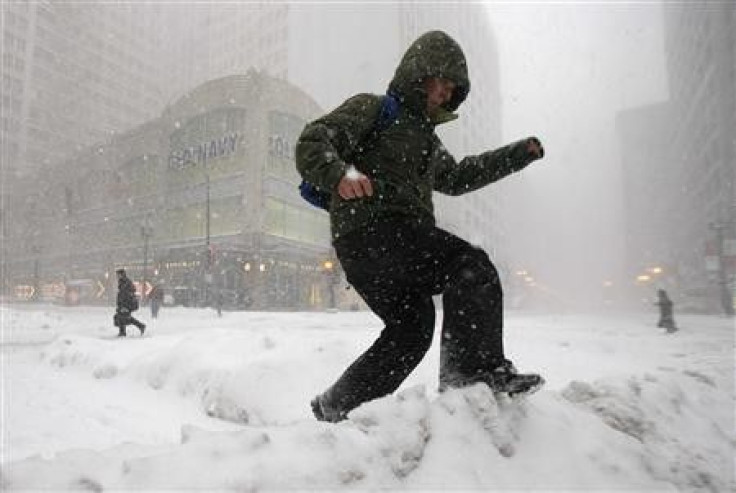Big dig-out follows widespread U.S. winter storm

Cities and towns across the United States started to dig out on Thursday from a winter storm that stretched for thousands of miles, with many areas still grappling with treacherous travel conditions.
Airlines face a huge job untangling schedules and getting travellers on their way after more than 10,000 flights were cancelled over two days.
Retailers will shed light on the impact of recent stormy weather on their initial spring sales when they report figures for January.
Plummeting temperatures in the central United States complicated recovery efforts on Thursday, touching everything from the winter wheat crop to rail transportation to preparations for the NFL's Super Bowl on Sunday in Dallas.
Chicago's Lake Shore Drive, crippled during the city's third-worst snowstorm on record, reopened on Thursday after 34 hours. Crews worked overnight to tow hundreds of cars still stranded by the storm.
The National Weather Service issued special advisories about black ice for New York and Boston. Wednesday's standing water on many streets and sidewalks froze overnight, making driving and walking treacherous in spots.
In New England, the weight of snow and ice caused several building roofs to collapse, including a large industrial building in Easton, Massachusetts. A popular outlet mall near Boston was closed as a precaution.
RETAIL SALES
Retailers ranging from Target Corp to Saks Inc report January sales on Thursday. Sales at stores open at least a year are forecast to rise 2.7 percent, compared to a rise of 3.3 percent a year earlier, according to Thomson Reuters data.
The market is obviously very aware of Mother Nature's negative impact this month, said Retail Metrics President Ken Perkins said.
Tangled air travel will take some time to return to normal, with hundreds of planes out of position and cold temperatures and areas of freezing rain creating new challenges.
Flightaware.com, a website that tracks air travel, showed more than 1,500 flights scrapped so far on Thursday.
The airports with the most flight cancellations were Chicago's O'Hare International, still feeling the impact of Wednesday's blizzard, and Bush International in Houston, where freezing rain is forecast.
This week's storm was just the latest winter blast in some areas. Boston, for example, has received almost twice its normal winter snowfall over the course of eight storms.
The cost of clean-up has blasted holes in the budgets of many cities, states and counties, which were already struggling with the aftermath of the severe recession.
Subzero temperatures in the Plains hard red winter wheat region on Thursday could harm those portions of the crop unprotected by a blanket of insulating snow, said forecasters Accuweather. Worries about the crop have already pushed up U.S. wheat prices.
© Copyright Thomson Reuters 2024. All rights reserved.











